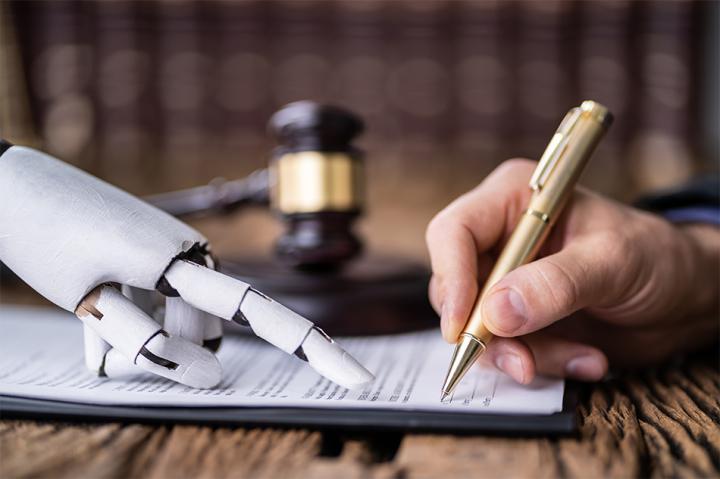Can AI chatbots be used as a substitute for lawyers?

We hate to break it to you, but artificial intelligence (AI) models (like ChatGPT) are not qualified solicitors.
This means that, whilst your conversation may (occasionally but not always) contain some correct legal information, it is not protected by the usual legal advice privilege or litigation privilege.
Looks like you may still need us after all!
Previously, we discussed the use of AI and the “end of the world” as we know it in relation to ownership of copyright and patentable ideas.
This time, we discuss the importance of exercising caution when using AI models to obtain legal advice or information on matters that are in litigation already or where litigation is likely to arise.
What is AI?
AI, put simply, is algorithmic systems that solve and perform tasks that normally require human involvement and human thinking.
Different types of AI models can be created to perform different tasks. For example, ChatGPT combines a chatbot (that cannot learn and that simulates human conversation) with a language model (that uses deep learning to produce human-like text) to form a tool that can create written pieces of work simply from the prompt entered by the user.
How is AI being used in the legal sector already?
Common uses of AI by firms include (amongst other things):
(a) automating and streamlining anti-money-laundering compliance checks;
(b) identifying legal precedents for litigation;
(c) reviewing and managing contracts;
(d) generating text, such as drafting and client letters; and
(e) responding to enquiries using chatbots.
The integration of AI models into the daily tasks of some law firms has been very successful, such as automating regulatory compliance checks, particularly when it comes to increasing the speed at which work can be turned around and the cost savings firms are able to offer their clients.
However, as with all new technology, AI integration is not without its teething issues.
What are the risks of using AI for legal advice?
Legal advice can be expensive, so asking a chatbot a legal question to then receive an almost instantaneous, and (often) free, answer seems like a no-brainer.
However, it is widely known that AI models can make mistakes, like humans. Further, AI models are known to learn and then reproduce the mistake, rather than learning from the mistake and correcting it in future, like a human would.
As AI language models anticipate the text that should follow, sometimes the result produced can look plausible but be incorrect.
AI can also follow the wrong patterns in the data, which can lead to incorrect biases. This is particularly prevalent where AI models are trained with data that contains historic discriminatory biases.
It is not unusual for clients to come to a solicitor with an idea of what they think they need, only to be advised that they need something entirely different to achieve their objective.
A chatbot cannot necessarily identify that you need something different to what you might be suggesting, whereas a human solicitor can.
If you are going to use a chatbot to research a legal matter, be aware that confidentiality is not guaranteed. Users of AI models should be cautious about the potential for other uses of their data under the AI model’s privacy policy.
However, and potentially more crucially, stored conversations you have with a chatbot are also not protected by “lawyer/client privilege” (an umbrella term usually used in relation to litigation or legal advice privilege),
Documents and/or communications that are not protected by privilege may be disclosable to the other party in the context of litigation proceedings.
What is the difference between legal advice privilege and litigation privilege?
Legal advice privilege protects a client from having to disclose communications made between the client and their lawyer, which were made with the dominant purposes of seeking or giving legal advice.
By comparison, litigation privilege applies to communications between the client and their lawyer or a third party that are made where litigation is anticipated (or is already underway) and must also be made for the dominant purpose of using it in the conduct of the litigation in some way.
I have used an AI model for legal advice – why is it not protected by privilege?
AI chatbots are computer programmes, not humans; it is therefore difficult to argue that any communications with chatbots fall within the scope of legal advice or litigation privilege.
Currently, there is a risk that any records of the conversation had with an AI model will not be privileged and may be disclosable in litigation proceedings.
Chatbot or lawyer?
The use of AI in the legal sector is increasing, and firms are effectively using it in many areas to increase efficiency and reduce costs for clients.
However, you should avoid using chatbots for legal advice or any ongoing litigation or matters you think may result in litigation and avoid storing any conversations with chatbots.
For advice that is accurate and protected by privilege (subject to formal instructions, of course) please contact Georgia Barber (a human lawyer) at [email protected].
Artificial Intelligence (AI) is algorithmic systems that solve and perform tasks that normally require human involvement and human thinking.
Legal firms are commonly using AI to automate more routine or repetitive tasks, such as anti-money-laundering compliance checks. However, AI chatbots are not a substitute for legal advice.
